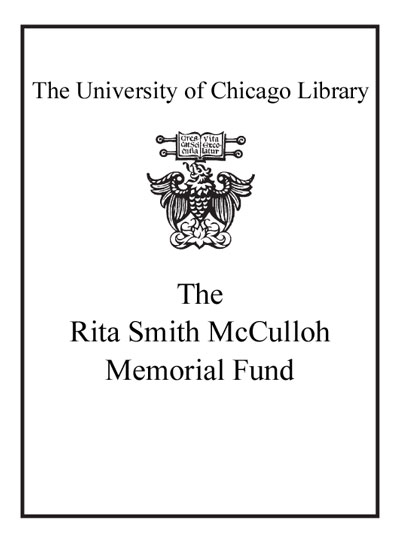Essentials of working memory assessment and intervention /
Saved in:
| Author / Creator: | Dehn, Milton J. |
|---|---|
| Imprint: | Hoboken, New Jersey : Wiley, [2015] |
| Description: | xv, 316 pages ; 22 cm. |
| Language: | English |
| Series: | Essentials of psychological assessment series Essentials of psychological assessment series. |
| Subject: | |
| Format: | Print Book |
| URL for this record: | http://pi.lib.uchicago.edu/1001/cat/bib/10892207 |
Table of Contents:
- Series Preface
- Acknowledgments
- 1. Working Memory Models
- Working Memory's Influence
- Baddeley's Working Memory Model
- Other Models of Working Memory
- The Controversy Regarding Working Memory Capacity
- Retention Intervals
- Cognitive Load Theory
- The Integrated Model of Working Memory
- 2. Cognitive Processes Highly Related With Working Memory
- General Intelligence
- Fluid Reasoning
- The Big Three
- Executive Functions
- Attention
- Attention-Deficit/Hyperactivity Disorder
- Oral Language
- Auditory Processing
- Phonological Processing
- Processing Speed
- Visual-Spatial Processing
- Sequential Processing
- Long-Term Memory
- Metamemory
- Strategies
- 3. Development, Neuroanatomy, and Risk Factors
- Development of Working Memory
- Metamemory Development
- Tong-Term Memory Development
- The Neuroanatomy of Working Memory
- The Neuroanatomy of Long-Term Memory
- Risk Factors for Working Memory Impairments
- 4. Working Memory's Influence on
- Academic Learning and Performance
- Working Memory and Classroom Learning
- Cognitive Load in the Classroom
- Working Memory and Basic Reading Skills
- Working Memory and Reading Comprehension
- Working Memory and Mathematics
- Working Memory and Written Expression
- Working Memory and Oral Language
- Working Memory and Scholastic Performance
- Working Memory and LD
- The Importance of Automaticity
- Implications for Assessment
- Conclusions
- 5. Assessment Strategies
- How to Determine Which Working Memory Component a Subtest Measures
- Informal Assessment Procedures
- Assessing Interaction With Long-Term Memory
- Working Memory Testing
- Testing Related Cognitive Processes
- Analyzing Test Results
- Interpretation of Working Memory Assessment Data
- Specific Learning Disability Determination
- Memory Processes Analyzer
- 6. Psychological Scales That Measure Working Memory
- Child and Adolescent Memory Profile (CHAMP)
- Cognitive Assessment System, Second Edition (CAS-II)
- Comprehensive Test of Phonological Processing, Second Edition (CTOPP2)
- Differential Ability Scales-Second Edition (DAS-II)
- Kaufman Assessment Battery for Children- Second Edition (KABC-II)
- The NEPSYII
- Stanford-Binet Intelligence Scales-Fifth Edition (SB 5)
- Test of Auditory Processing Skills, Third Edition (TAP5-3)
- Test of Memory and Learning-Second Edition (TOMAL-2)
- The Wechsler Intelligence Scales
- WISC-IV Integrated
- Wechsler Memory Scale, Fourth Edition (WMS-IV)
- Wide Range Assessment of Memory and Learning-Second Edition (WRAML2)
- Woodcock-Johnson IV Tests of Achievement (WJIVACH)
- Woodcock-Johnson IV Tests of Cognitive Abilities (WJ IV COG)
- Woodcock-Johnson IV Tests of Oral Language (WJIVOL)
- 7. Working Memory Interventions That Change the Brain
- Types of Working Memory Interventions
- Selecting Working Memory Exercises and Strategies
- Measuring Progress
- Metamemory Training
- The Efficacy of Working Memory Training
- How Working Memory Training Changes the Brain
- Conclusions Regarding the Efficacy of Working Memory Training
- Internet-Based Working Memory Training
- Hands-On Working Memory Exercises
- Interventions That Improve Related Cognitive Processes
- 8. Supporting Working Memory in the Classroom
- The Mnemonic-Based Classroom
- Metamemory Instruction
- Insttuction That Reduces Cognitive Load
- Accommodations and Modifications for Specific Academic Subjects
- General Accommodations
- Instructional Practices That Support Working Memory
- Teaching Working Memory Strategies
- Bypassing Working Memory by Using LTM Strategies
- 9. Case Study
- Working Memory Interpretation Section
- Case Study Assessment
- Example of a Written Interpretation
- Jon's Interventions
- Appendix A. Scaled Score to Standard Score Conversion Table With Percentiles
- Appendix B. T-Score to Standard Score Conversion Table
- Appendix C. Working Memory Composites and Subtests Sorted by Scale
- Annotated Bibliography
- References
- About the Author
- About the Online Resources
- Index

